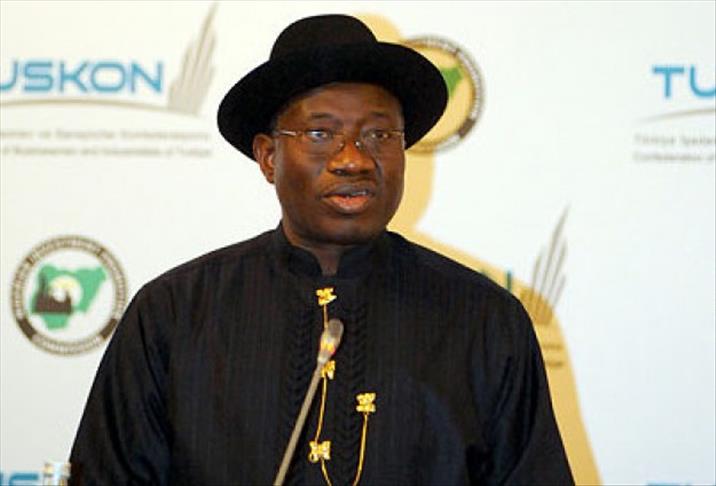
LAGOS
By Rafiu Ajakaye
Nigerian President Goodluck Jonathan on Thursday sacked the country's top military chiefs in a step military sources said was geared towards reinvigorating the counter-insurgency campaign in the country's troubled northeastern region.
"President Jonathan has appointed new Chief of Defense Staff (CDS) and Service Chiefs," announced presidential spokesman Reuben Abati.
Abati said Alex Baden, a three-star general otherwise known as Air Vice Marshal, had been named the new CDS.
Baden, who took over from Admiral Ola Sa’ad Ibrahim, has now been promoted to four-star general and Air Marshal.
"Major-General Kenneth Tobiah Jacob Minimah takes over from Lt.-General Azubike O. Ihejirika as Chief of Army Staff," Abati said.
Rear Admiral Usman O. Jibrin takes over from Vice Admiral Dele Joseph Ezeoba as Chief of Naval Staff while Air Vice Marshal Adesola Nunayon Amosu takes over from Air Marshal Badeh as Chief of Air Staff.
"All the changes are with immediate effect," Abati said.
Nigeria's service chiefs include the Chief of Army Staff, Chief of Air Staff and Chief of Naval Staff, all of whom are high-ranking generals of varying experience.
The three chiefs head up the country's army, air force and navy respectively.
Those removed from the positions are automatically retired, according to military practice.
Abati said the president had briefed the leadership of the parliament about the shake-up and would request the Assembly, currently on recess, to "formally confirm the appointments when it reconvenes."
An appointment of service chiefs is a political decision, made at the discretion of the president.
But the Parliament still needs to ratify the appointments.
Military sources told Anadolu Agency that Thursday's shakeup was aimed at reinvigorating Nigeria's counter-insurgency campaign in the troubled northeastern region.
The three northeastern states of Borno, Yobe and Adamawa have all been subject to emergency rule due to the ongoing Boko Haram insurgency.
A hitherto peaceful organization that had preached against government corruption, Boko Haram suddenly turned violent in 2009 following the murder of group leader Mohamed Yusuf while in police custody.
In the years since, Boko Haram has been blamed for thousands of terrorist acts, including attacks on churches and security posts across Nigeria's northern region.
Although it claims to want an Islamist government in the region, Nigerian Muslims – most of whom reject Boko Haram as un-Islamic – have also been targeted by the militant group.
englishnews@aa.com.tr
Anadolu Agency website contains only a portion of the news stories offered to subscribers in the AA News Broadcasting System (HAS), and in summarized form. Please contact us for subscription options.

